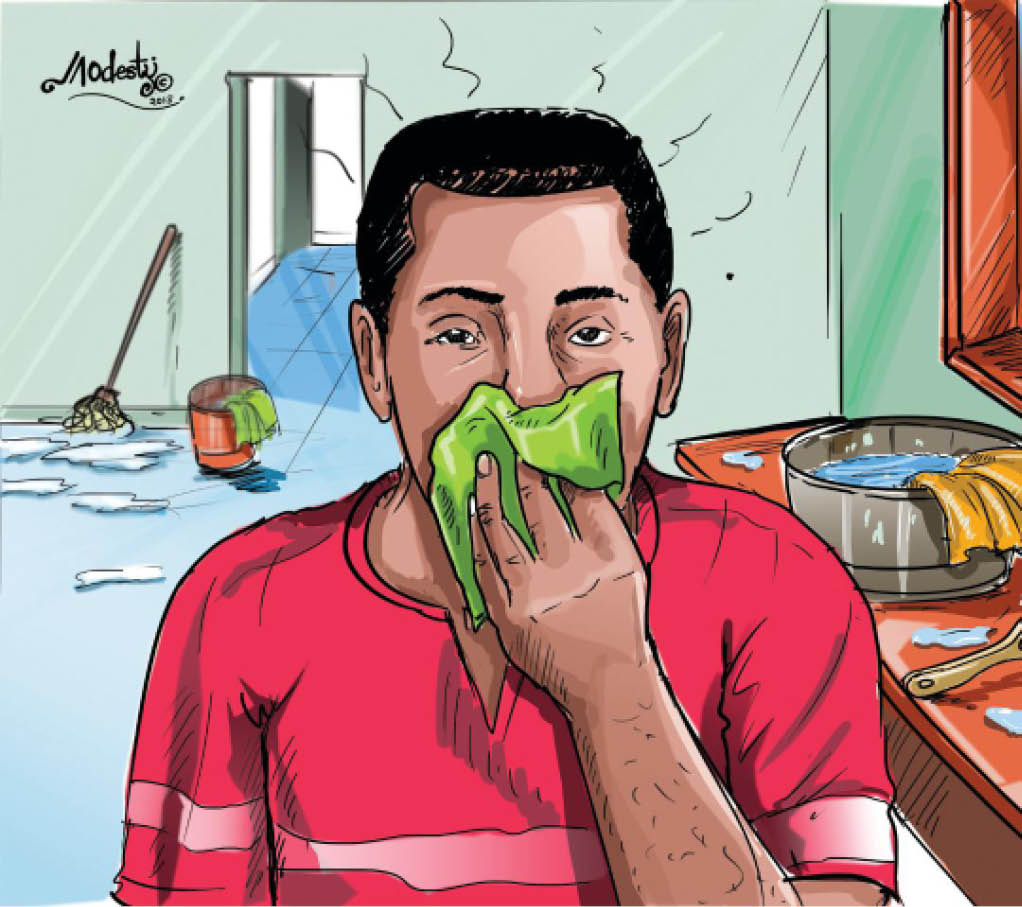The cold season makes most adults and children suffer from common cold and other related health issues and as a result many people frequent pharmacies and health facilities for solutions.
Experts have said it is important for people to be mindful of the preventive measures especially with the COVID-19 on the prowl.
- Again, Aisha Buhari absent in Aso Rock for two months
- Buhari, service chiefs and insecurity in Nigeria
Cold weather increases mortality and poses a high health risk to many, particularly vulnerable groups.
Health and social services often face the challenge of caring for an increased number of patients suffering from various cold-related conditions.
Disruptions in services and infrastructure can further indirectly aggravate the health effects of the season, but knowing the risks and measures needed to prepare for and respond to cold weather can help prevent them.
While common cold ailments are more common during the cold season it can also happen at any time of the year.
According to the World Health Organisation (WHO), taking measures against cold is necessary; residents should ensure that their homes are well insulated and windows and curtains closed properly.
The measures also require wearing appropriate layers of warm clothing and remembering to cover hands, feet and the head to avoid health risks.
The Centre for Disease Control and Prevention (CDC) said sore throat and runny nose are usually the first signs of a cold, followed by coughing and sneezing.
It could also cause headaches and body aches.
“Most people recover in about 7-10 days.
“However, people with weakened immune systems (asthma, or respiratory conditions) may develop serious illness, such as bronchitis or pneumonia during the cold season.
“You can help reduce your risk of getting a cold by: washing your hands often, avoid close contact with sick people, and don’t touch your face with unwashed hands,” the centre said.
Pharmacist Abdulmalik Muhammad said the cold season comprises the harmattan or dry season and span from November to February or March the following year.
He said: “The season profusely comes with a cold, particularly dusty and dry wind that blows heavily creating big clouds of dust which can result in sandstorms, sun blockade and intensely diminished visibility, an effect called harmattan haze.
“These effects, along with low humidity associated with this season, also cause the human skin to easily crack and dry out, especially the lips and feet soles.”
He said people go to pharmacies with self-prescription for catarrh, sore throat, cough, aggravated skin conditions, spontaneous nosebleeds, irritated eyes and related inflamed respiratory tract ailments.
“Studies have found that people with existing underlying respiratory conditions such as asthma, pneumonia, COVID-19, and related ailments, are seriously prone to complications during the harmattan period,” he said.
Pharmacist Abdulmalik advised the public to get properly kitted when outdoors, wear face masks and eyeglasses to prevent microbes and allergens carried by the dusty winds from getting in.
“Also, socks should always be worn to prevent pedal damage and use of lip-balm helps slowdown chapping of the lips. Frequent intake of water is also necessary for the body to prevent excessive skin dehydration and personal hygiene should be maintained,” he advised.
Mariyah Yunusa, who also spoke with our reporter, said the cold season is not agreeable with her because she often had a runny nose, sore throat, cough and sometimes her lips cracked due to excessive cold.
“It can be treated at home by bathing with warm water, wearing sweaters, socks, staying indoors in the morning and evening; if it is chronic then medication should be included,” she said.
The CDC said you could help reduce your risk of catching a cold through the following ways:
Wash your hands often with soap and water. Wash them for 20 seconds, and help young children do the same.
If soap and water are not available, use an alcohol-based hand sanitizer.
Viruses that cause colds can live on your hands, but regular handwashing can help protect you from getting sick.
Avoid touching your eyes, nose and mouth with unwashed hands.
Viruses that cause colds can enter your body this way and make you sick.
Stay away from people who are sick. Sick people can spread viruses that cause the common cold through close contact with others.
Also, practice good cough and sneeze etiquette: always cough and sneeze into a tissue or your upper shirt sleeve, completely covering your mouth and nose, the CDC said.
It also said if you have a cold, you should follow the tips below to help prevent spreading it to other people:
Stay at home while you are sick and keep children out of school or daycare while they are sick.
Avoid close contact with others, such as hugging, kissing, or shaking hands.
Move away from people before coughing or sneezing.
Cough and sneeze into a tissue then throw it away, or cough and sneeze into your upper shirt sleeve, completely covering your mouth and nose.
Wash your hands after coughing, sneezing, or blowing your nose.
Disinfect frequently touched surfaces and objects, such as toys, doorknobs, and mobile devices.
There is no vaccine to protect you against the common cold.
Experts at the CDC also advise people to see a doctor when they or their children have one or more of the following conditions:
Symptoms that last more than 10 days
Symptoms that are severe or unusual
If your child is younger than 3 months of age and has a fever or is lethargic.

 Join Daily Trust WhatsApp Community For Quick Access To News and Happenings Around You.
Join Daily Trust WhatsApp Community For Quick Access To News and Happenings Around You.


